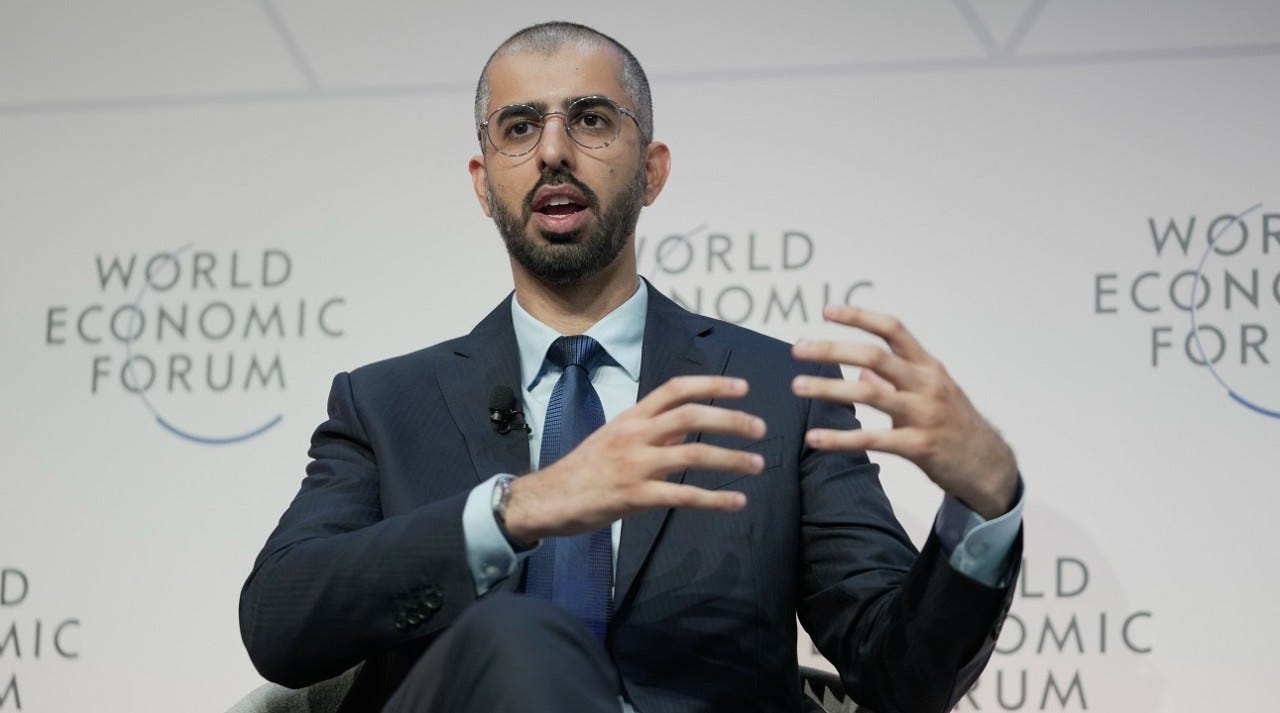The UAE's AI diplomacy
The success of the UAE's AI diplomacy campaign
The UAE was one of the first countries in the world to prioritise artificial intelligence at a national level, was an early mover in developing a national AI strategy and became the first country to appoint a minister for artificial intelligence. Meanwhile, the government's resolve to ensure that the UAE leads in its ability to implement AI and leverage it to the country's economic advantage is plain for anyone to see, by simply browsing the news.
The UAE has also found that AI can be a useful topic to drive engagement with the global community. Rarely does one now see news of a diplomatic engagement with the UAE that fails to mention artificial intelligence. The diplomatic, trade, finance and defence bilateral meetings with foreign powers routinely include AI in the agenda.
This week, we've seen the UAE's Minister of State for Artificial Intelligence, Digital Economy and Remote Work Applications H.E. Omar bin Sultan Al Olama call for international cooperation between governments on AI ethics at the World Economic Forum (WEF), the Minister of Economy H.E. Abdulla bin Touq Al Marri announced a 'Markets of tomorrow' initiative with WEF, another WEF agreement was signed to develop Fourth Industrial Revolution applications in the UAE, and, last but not least, UAE ambassador to the United Nations H.E. Lana Nusseibeh warned Security Council members about the potential of extremists launching swarms of attack drones.
The future of AI maybe great for getting headlines in the media, but it's of much greater value because the UAE not only 'talks the talk', but also 'walks the walk'. The relentless focus on AI by the government is showing results globally, regionally and locally.
On a grass roots level, this focus at the top has helped make AI a priority across business, careers, education, and the public sector. True, timescales vary between the AI press releases and the actual delivery, but the path for both public and private sectors is clear. It is now becoming commonplace for AI to be considered, developed, trialed and implemented to gain competitive advantage.
The country identified early on that it needed to become an innovator in, and producer of AI, rather than simply a consumer. Government initiatives to skill-up the public sector on AI and advanced digital technologies support this, as do the startup programs launched over the past few years to lure new global tech ventures to the Emirates. At this week's World Economic Forum, Omar Al Olama revealed that the UAE government had signed a strategic agreement with the University of Oxford to send government officials to the institution for an eight-month course to learn about AI and AI ethics.
Regionally, the UAE has already become a hub for AI technology, development, education and training and expertise. Its regional influence is going to continue to grow as it continues to show leadership across relevant digital policy, initiatives, incentives and education.
On the world stage, the UAE has managed to move itself into the spotlight as both a proponent of artificial intelligence and a increasingly successful user of it. The growing global perception of the UAE as an AI-focused hub of innovation enabling a new digital economy, no doubt plays a role in positioning the country in the minds of allies, investors, AI talent and developers.
Always an active diplomatic player, the UAE has leveraged AI and its plans to open up new digital markets to bolster its international reputation. Relationships that go back decades are being reinvigorated, giving rise to new areas of cooperation. Institutions in the UAE are not only collaborating more and more with other global insitutions on R&D, innovation and education, but also increasingly on an equal footing.
Find out more about this story:
See the Arab News WEF AI Ethics panel story.
Read more about the UAE delegation to WEF
Check out the UAE Artificial Intelligence Office.


